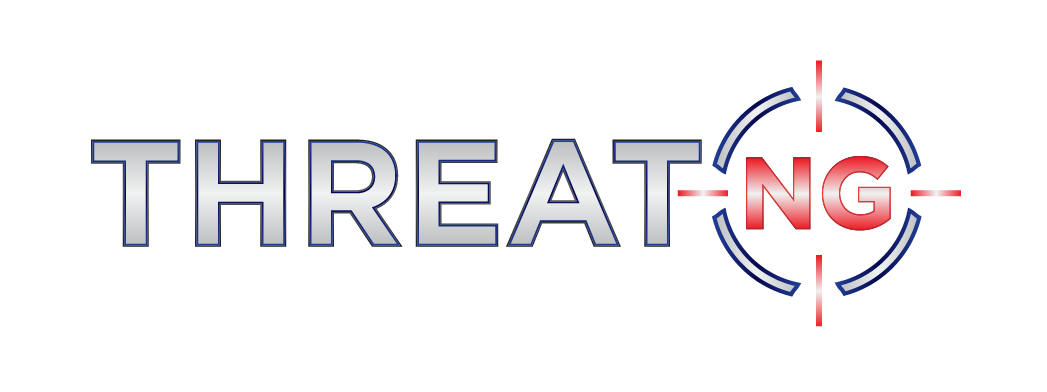
ESG Risk Assessment and Monitoring
Integrated ESG Risk Intelligence
Environmental, Social, and Governance (ESG) factors have become essential indicators of an organization's resilience and long-term value. ThreatNG provides Integrated ESG Risk Intelligence, delivering a unified view of potential ESG risks by combining security ratings, intelligence repositories, and sentiment analysis. This comprehensive approach allows organizations to proactively identify, assess, and manage ESG-related exposures, ensuring greater transparency, accountability, and sustainable growth.
ESG Exposure Score
A measure of exposure to environmental, social, and governance (ESG) risks.
DarCache ESG
Searchable intelligence repository of Environmental, Social, and Governance (ESG) violations.
Sentiment and Financials
Investigation module that discovers and reports ESG Violations, aliases, private company funding information, public company filings, public company chatter, layoff chatter, news chatter (general and negative), and lawsuits.

ESG stands for Environmental, Social, and Governance and refers to a set of non-financial metrics and standards used to evaluate an organization’s performance and operations concerning the following:
Environmental
An organization's environmental effects include its carbon footprint, use of renewable energy, and waste management practices.
Social
An organization's impact on society includes labor practices, human rights records, and community engagement.
Governance
How the organization is run and managed, including leadership, executive compensation, and the effectiveness of internal controls and systems.

ThreatNG’s Comprehensive ESG Violation and Reporting Capabilities
ThreatNG empowers organizations to proactively identify and manage ESG-related risks through advanced analytics and intelligence capabilities. ThreatNG detects potential violations by analyzing public sentiment and financial data while leveraging the Sentiment and Financials Investigation Module. The ESG Exposure Security Rating provides a quantifiable measure of an organization's documented violations. Furthermore, ThreatNG's DarCache ESG, a robust intelligence repository, compiles and delivers critical information on global ESG violations, enabling comprehensive monitoring and reporting to ensure compliance and mitigate potential reputational and financial risks.
Actions that unfairly limit market competition, such as price-fixing, monopolies, and bid-rigging, constitute these violations. Innovation is stifled, consumers are harmed through inflated prices, and market efficiency is distorted. Legal penalties can be imposed on organizations involved in such practices, undermining fair trade principles.
Actions that harm the natural environment, such as pollution, illegal waste disposal, and habitat destruction, constitute such violations. Climate change damages ecosystems, and substantial fines and regulatory action can result. Organizations are increasingly held accountable for their environmental footprint.
Healthcare Compliance Violations
This area encompasses breaches of healthcare regulations, including fraud, patient privacy violations, and improper handling of controlled substances. When these occur, patient safety is compromised, the integrity of healthcare systems is undermined, and severe penalties can result. Strict adherence to healthcare compliance is essential.
Consumer Protection Violations
Deceptive, unfair, or unsafe practices that harm consumers define this category. False advertising, product safety failures, and discriminatory sales tactics are examples. Consumer trust is eroded, and businesses face legal repercussions and reputational damage.
Illegal or unethical financial activities include fraud, money laundering, and insider trading. They can undermine financial stability, erode investor trust, and result in severe legal penalties. Robust financial governance is essential to prevent such offenses.
Safety and Security Violations
Failure to protect individuals and assets from harm, including workplace accidents, product safety defects, and data breaches, represent these violations. Lives are endangered, reputations are damaged, and substantial legal liabilities can result. Organizations must prioritize safety and security to mitigate these risks.
Labor and Employment Violations
This heading covers various offenses related to workers’ rights and fair employment practices. These include discrimination, wage violations, unsafe working conditions, and breaches of labor laws. These offenses damage employee morale, create legal liabilities, and harm a company's social standing.
Government Contracting Irregularities
This heading covers various offenses related to workers’ rights and fair employment practices. These include discrimination, wage violations, unsafe working conditions, and breaches of labor laws. These offenses damage employee morale, create legal liabilities, and harm a company's social standing.
General Governance and Ethical Breaches
This category includes various unethical or illegal actions that undermine good corporate governance. Bribery, conflicts of interest, and lack of transparency are examples. These actions can erode stakeholder trust, damage a company’s reputation, and result in legal and financial consequences. Strong ethical leadership and robust governance structures are crucial for prevention.
ESG violations affect susceptibility and exposure to cyber-attacks, digital risk levels, and security rating scores.
External Attack Surface
Organizations that violate ESG principles may face increased scrutiny from stakeholders, activists, and regulators, resulting in more frequent and intense cyberattacks as malicious actors seek to exploit vulnerabilities in the company's digital infrastructure. Public pressure and negative publicity associated with ESG violations can also drive up the cost of cybersecurity, increase the complexity of threat mitigation, and reduce the effectiveness of security measures.
Digital Risk
ESG violations can also increase an organization's overall digital risk level by creating new attack vectors and increasing the severity of existing risks. For example, an organization engaged in environmental degradation could attract the attention of hacktivist groups who might attempt to compromise the company's digital assets to make a statement or disrupt operations. Another example is that an organization accused of labor rights violations may be at increased risk of data breaches or network intrusions from nation-state actors or organized crime groups seeking to exploit this information for financial gain.
Third Party and Supply Chain Risk Management
Suppliers or partners found to have engaged in ESG violations can create new attack vectors, increase your digital risk by creating new vulnerabilities, and affect your own organization's security rating.
Security Rating
ESG violations can lead to reputational damage, loss of trust, regulatory or legal risks, and decreased market value, negatively impacting a company's security rating.




